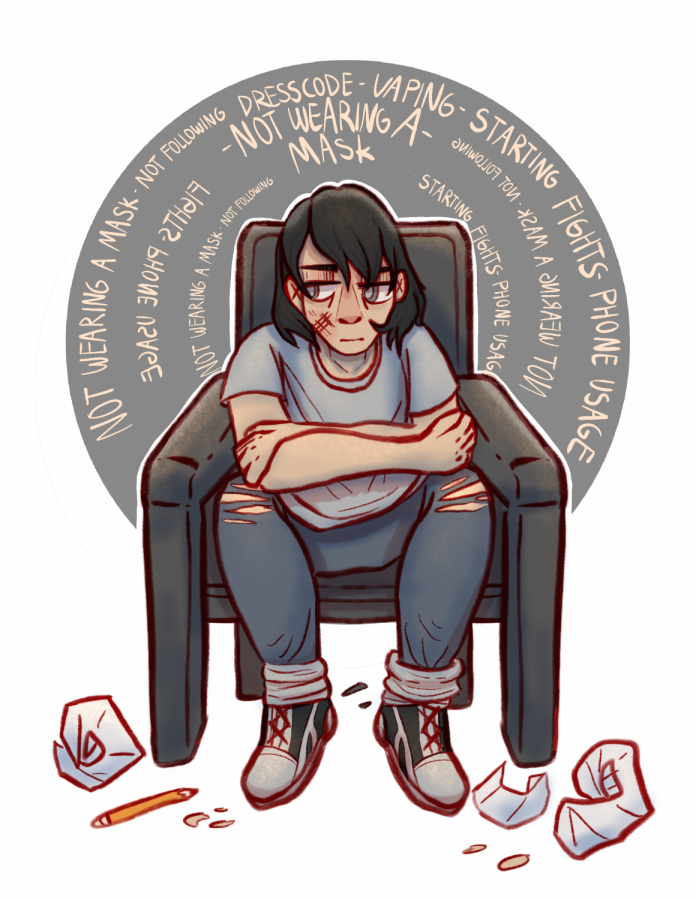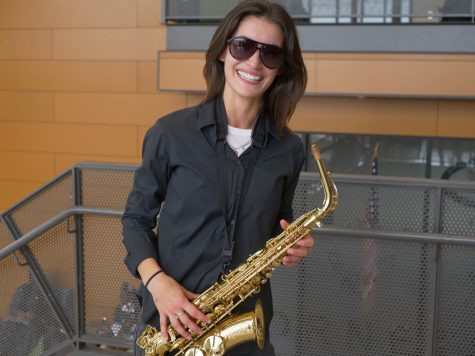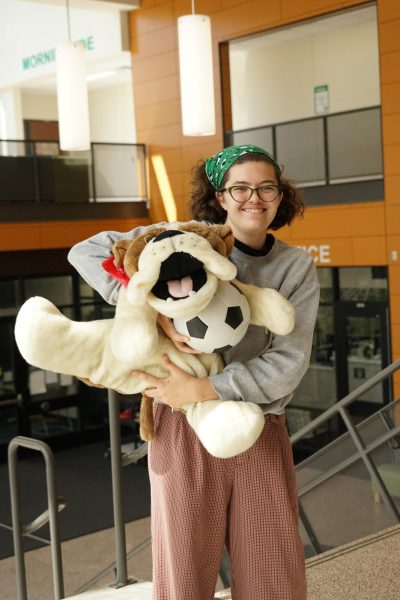Edina High School faces unprecedented behavior issues
December 12, 2021
Michael Pretasky, one of Edina High School’s four assistant principals, keeps a laminated copy of the EHS Student Handbook in his desk at all times. Whether dealing with attendance violations, prohibited substances, or behavioral issues, Pretasky uses the handbook as a touchpoint for the high school’s official policies while administering disciplinary action. His office copy has received significantly more use in the past two months, as an increased number of students have been called into the office for infractions.
Punishment for these violations can take the form of in-school “restorative” punishments like detention, or out-of-school suspensions. Pretasky is directly responsible for the paperwork and communication, as well as the return to school.
“If we’re going to [issue a suspension], I will call it home, I’ll talk to parents, fill out a suspension form…I’ll also talk to the family about how we would like to set up a readmit meeting or a reentry meeting, where we meet with a family…and try to get things started back as smoothly as possible for those students,” Pretasky said.
While official suspension data will be compiled near the end of the semester, the first two months of school have demonstrated an emerging trend for the 2021-22 school year: Edina’s suspensions are appearing to exceed the number that were applied for the entirety of 2020-21. This increase is partially attributed to the irregularity of last school year.
“[It] was a complete anomaly…I would have a hard time believing there were ever less suspensions,” Officer Joe Delgehausen, the high school’s resource officer, said.
The in-school officer primarily handles criminal issues at the high school, but Delgenhausen interacts with students coming into the office for minor infractions as well. This year marks Delgehausen’s last at Edina—next fall, another member of the Edina Police Department will be brought in to fill his position—and he has noted a distinctive change in student attitudes compared to previous years at the high school.
“I think kids are more restless, for lack of a better term. They haven’t been in school for a while,” Delgenhausen said. “Normally when you’re used to being in school and you’re used to that structure, you wouldn’t see [this behavior] but I feel like the kids are behind maturity-wise.”
Pretasky echoed Officer Delgehausen’s sentiment: “Life was pretty flexible when you were sitting in your living room doing school. It’s not as flexible when you’re in the classroom with other students. You have to operate within a system of instruction,” he said.
While still in the process of recognizing and addressing the emerging trend of increased suspensions, Pretasky suggests moving beyond administrative action to combat student behavior. “What we want to have is our older students set a really good, firm example of what it is to be a high school student, and grow up a little bit, to have some pride in your class and your school in your building. We’re looking for student leaders,” he said.





